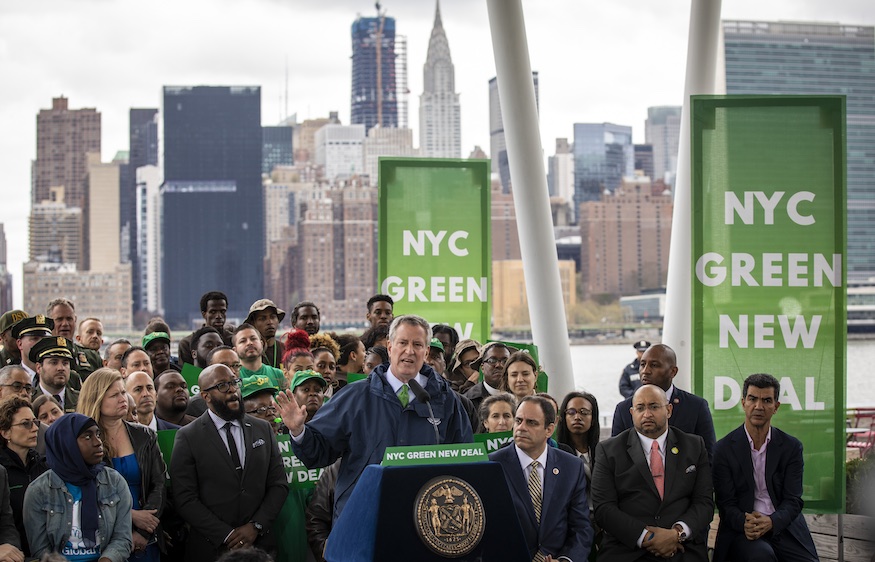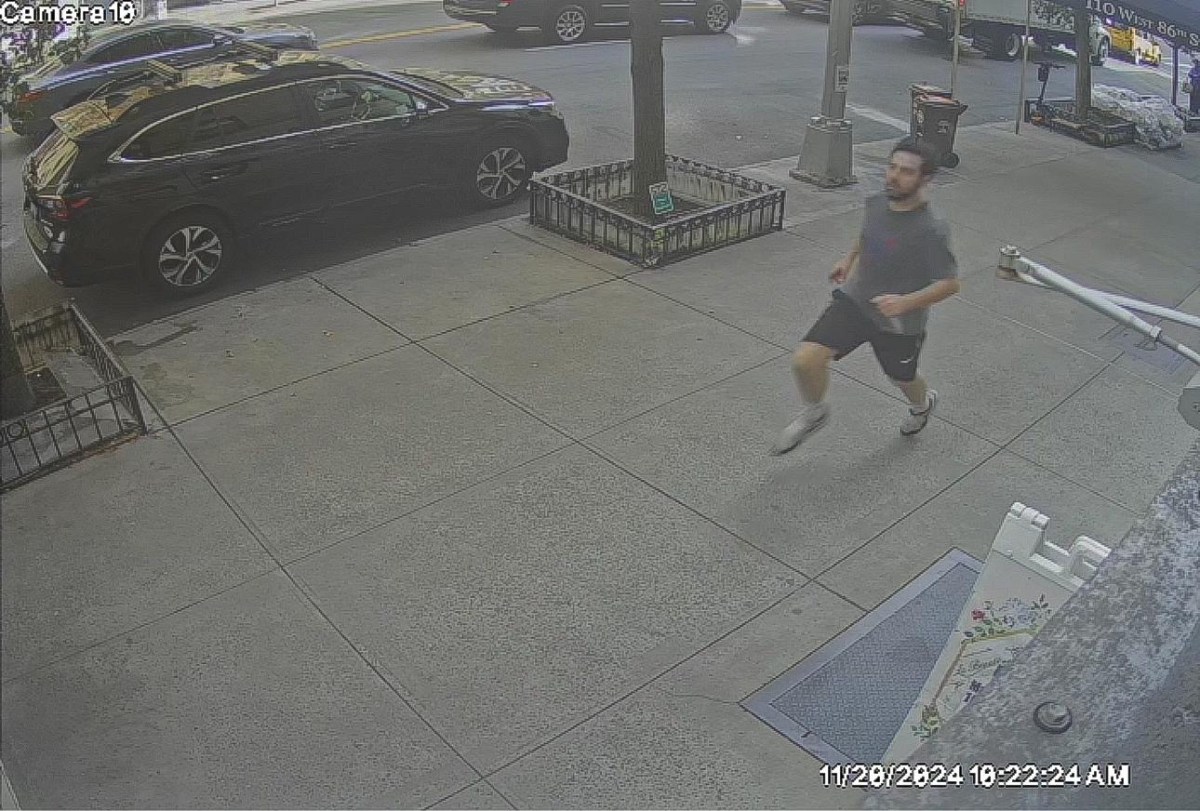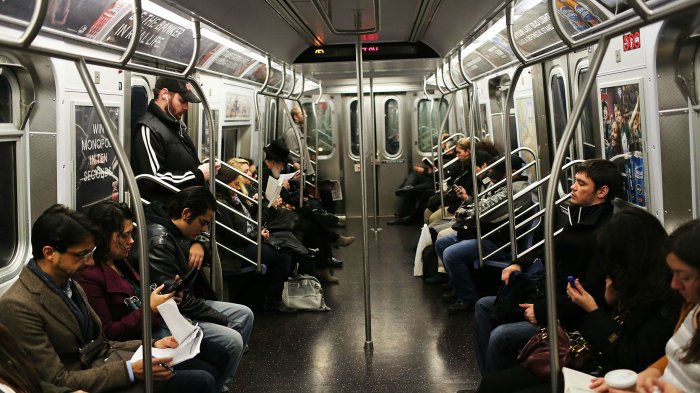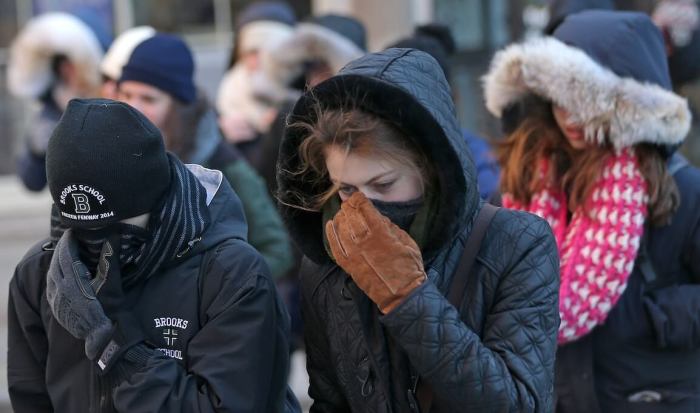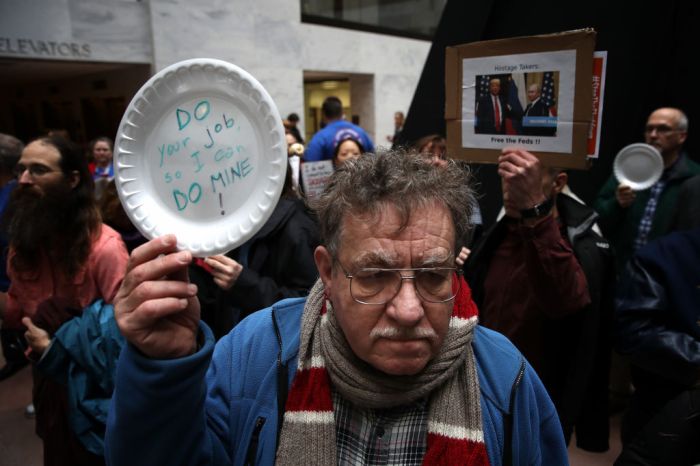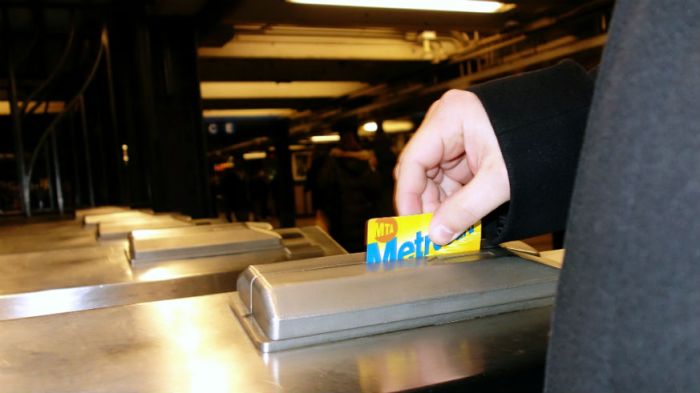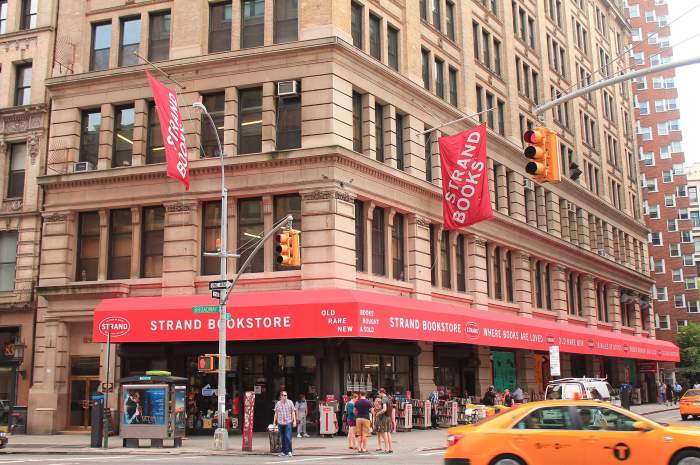New York City on Earth Day released the OneNYC 2050 blueprint of its Green New Deal, a $14 billion effort aiming to cut down 30 percent of greenhouse emissions by 2030 while creating “tens of thousands of good jobs.”
“Every day we wait is a day our planet gets closer to the point of no-return. New York City’s Green New Deal meets that reality head on,” Mayor Bill de Blasio said in a statement Monday. “We are confronting the same interests that created the climate crisis and deepened inequality. There’s no time to waste. We’re taking action now, before it’s too late.”
City officials intend to pursue steep cuts in greenhouse gas emissions from buildings and source 100 percent clean electricity, while creating green jobs and holding polluters responsible for climate-related costs by 2050. New York City is the first city in the world to require all large existing buildings of 25,000 square feet or more lower their energy usage and emissions. NYC has 50,000 buildings of this size citywide. The City is also banning all-glass facades in new construction unless they meet strict performance guidelines, making inefficient glass-heavy building designs a thing of the past.
“Here in New York City, we recognize our climate crisis for what it is: An emergency. Also that what matters most is not words, but action,” Daniel Zarrilli, NYC’s Chief Climate Policy Advisor and OneNYC Director said in a press release.
“With today’s release of OneNYC 2050, we are demonstrating to the world what a green new deal looks like in practice. Taking on the fossil fuel industry, getting our emissions to net zero, building greater resiliency citywide, and creating an inclusive economy. These may not be easy, but they are necessary if we are to secure a livable future for the next generation. And by taking action now, we are building a strong and fair city for all New Yorkers.”
Mayor de Blasio said that New York City will also guarantee health care for every New Yorker, to create the universal coverage for uninsured New Yorkers, regardless of ability to pay or immigration status. This health care push includes new efforts in combating the opioid epidemic and deploying engagement teams alongside first responders to support people with mental health and substance abuse issues. Other goals include improving transit systems and road conditions, plus a $20 billion resiliency plan to address “the growing threats of coastal storms, sea-level rise, extreme heat, and increased precipitation with projects and programs across the city.”
Visit onenyc.cityofnewyork.us/ for more information.

